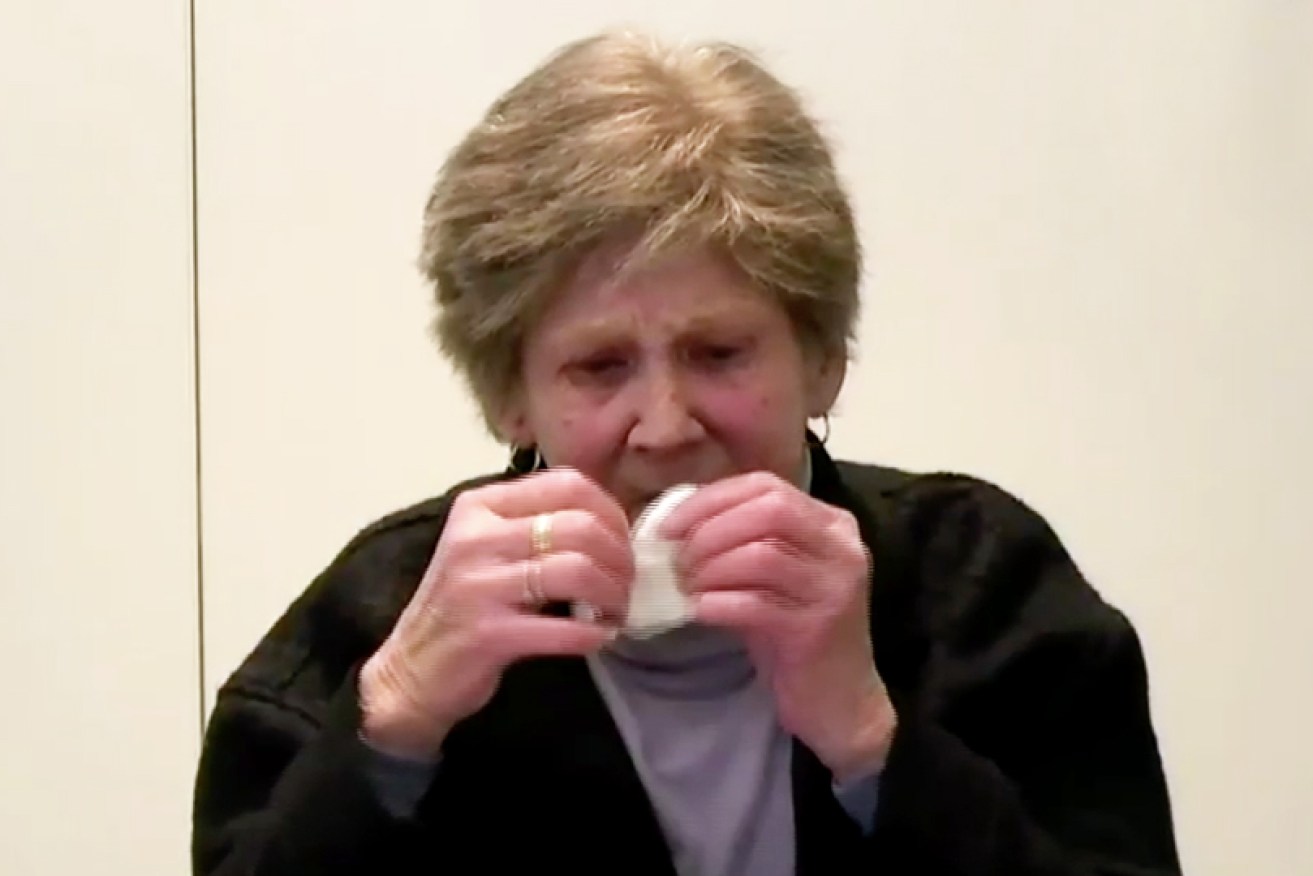Westpac wanted to sell a disabled pensioner’s home to pay a guarantee


Carolyn Flanagan had to give her evidence by video link, as she was too ill to travel from Sydney. Photo: AAP
Westpac allowed an almost blind disability pensioner suffering from cancer and osteoporosis to act as guarantor for her daughter’s business loan without checking her personal situation or whether she was capable of making good her commitment if things went wrong, the financial services royal commission has heard.
When the loan went into default, Westpac moved to sell the woman’s home which, had it gone ahead with the plan, would have left the severely disabled woman homeless.
The bank relented following intervention from Legal Aid NSW, allowing her to remain in the house for the rest of her life or until she decides to sell.
The woman, Carolyn Flanagan, was too ill to attend the commission and gave her evidence by video link from her home in New South Wales. Ms Flanagan said she agreed to give a guarantee to back her daughter and her partner into a franchise business in 2010.
After attending a meeting at a Westpac branch in 2010, Ms Flanagan agreed to sign the guarantee but said she did not understand the full details of her commitment.
“I thought I was agreeing to put up $50,000 but it turned out to be a lot more than that,” she said.
Ms Flanagan, whose memory is failing, said she could not remember consulting a lawyer about the guarantee, but Westpac claimed her lawyer had witnessed the guarantee. For some years the bank was unable to produce the evidence, however in the run-up to the royal commission the document emerged.
When the evidence was produced in court Commissioner Kenneth Hayne cast doubt on its value saying it gave no information on the nature of the advice she received.
Westpac commercial banking manager Alastair Welsh told the commission that Westpac had not followed its procedures in allowing Ms Flanagan to sign a guarantee.
The bank requirements included “personally interviewing the guarantor to provide a copy of the security documents and a copy of the facility letter …”
He agreed that given Ms Flanagan’s circumstances those requirements had not been complied with.
Counsel assisting Michael Hodge QC observed that “warning signs that the banker ought to have observed” about Ms Flanagan had been missed. Mr Welsh agreed.
“She suffers from … quite debilitating health conditions. She had difficulty speaking, she could not read and she could not write. If Westpac was to call on the guarantee, she would be rendered homeless?”
“Yes,” Mr Welsh replied.
Despite Ms Flanagan being on a disability support pension, the bank had effectively relied on her income to support the franchise business her daughter had taken on. Mr Welsh said that the bank would lend only 50 per cent to 60 per cent on the expected cashflow of a franchise without the borrower putting up extra security such as property.
However, Ms Flanagan’s daughter and partner wanted to borrow 100 per cent so the bank would not lend to them without property as security.
“We didn’t do it here as they wanted to borrow 100 per cent. We would not expect the business to support [the loan] wholly itself.”
Mr Hodge observed that in the circumstance Westpac had not concerned itself with Ms Flanagan’s cashflow, “just that the guarantor would be good for it”.
That prompted an intervention from Commissioner Hayne who said “the expression ‘reliable assets’ means reliable by Westpac”.
When Legal Aid NSW first took the case to Westpac, the bank rejected the request to stay its exercise of the guarantee. However, following the intervention of another consumer advocate an agreement was made.
It allowed Ms Flanagan to stay in her home, but requires she or her estate pay the bank $170,000 when she dies or sells the home.








